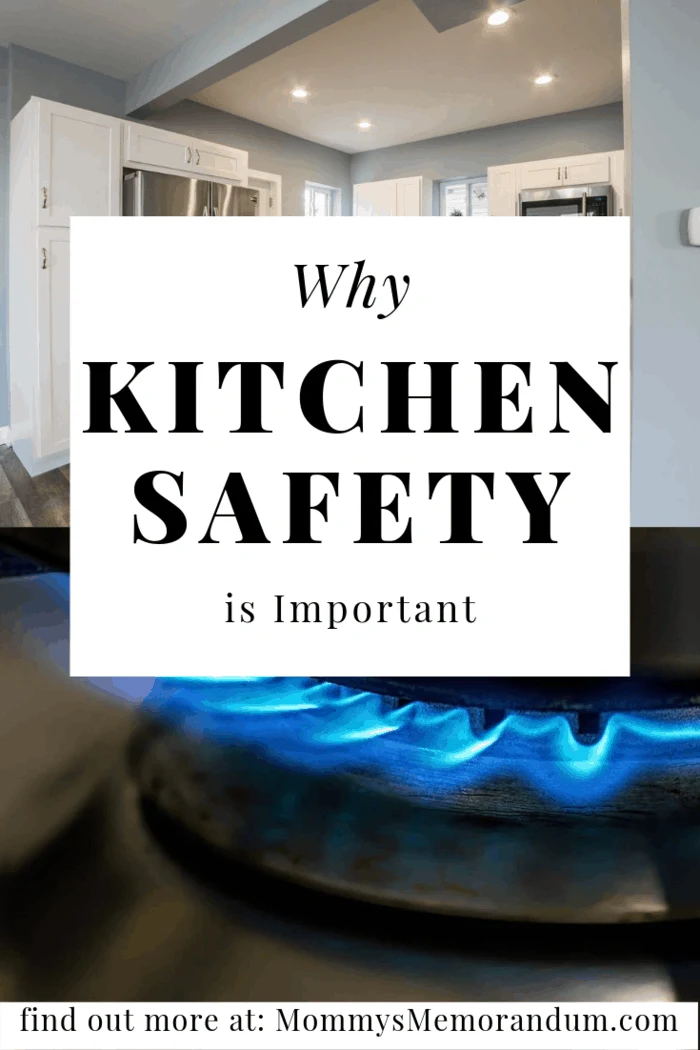Why Kitchen Safety Is Important: Protecting Your Loved Ones and Home
If there’s one place where safety should be a top priority, it’s the kitchen. Whether you’re whipping up dinner for your family or experimenting with new recipes, the kitchen can be a hazardous place if you’re not careful. From sharp knives to open flames and electrical appliances, there’s always a risk of accidents. In this article, I’ll dive into why kitchen safety is important and share key tips to help you stay safe in your kitchen—whether you’re at home or running a bustling restaurant kitchen.

The Shocking Truth About Kitchen Accidents
Let me tell you a story. It was a sunny Saturday afternoon in September, and I was preparing my grandmother’s famous beef stew recipe. As I was chopping vegetables, I heard a loud crash in the living room and rushed to check on it. I’d only been gone for a minute, but that was all it took for my towel, which I’d carelessly tossed near the stove, to catch fire. Luckily, I caught it in time, but it was a stark reminder of how quickly accidents can happen when we let our guard down.
Sadly, not everyone is as lucky. According to the National Fire Protection Association, cooking equipment is the leading cause of home fires and injuries in the United States. In fact, the U.S. Fire Administration reports that cooking fires account for 49% of all home fires. Worse yet, unattended cooking is responsible for nearly half of these fires, leading to injuries, property damage, and sometimes tragic fatalities.
So, what can we do to minimize these risks?
Top Kitchen Safety Tips to Keep Your Home Safe
1. Watch What You Wear
Loose sleeves and dangling jewelry are more than just a fashion faux pas—they’re fire hazards. A friend of mine once set her sleeve on fire while reaching over the stove to grab a pan. Lesson learned: always opt for snug-fitting clothes and tie back long hair when cooking.
2. Keep Sharp Objects Stored Safely
Knives should always be stored in a knife block or drawer with a safety latch, especially if you have kids. I still remember when I was little, my brother tried to grab a knife off the counter—thankfully, my mom intervened just in time.
3. Clean Up Spills Immediately
Slippery floors are a recipe for disaster. I once slipped on an unnoticed oil spill, and let me tell you, it’s not fun falling with a boiling pot of soup in hand. Always wipe up spills as soon as they happen to avoid accidents.
4. Be Mindful of Pot Handles
This is especially important if you have kids running around. Turn pot handles inward to prevent curious little hands from pulling them down and causing a dangerous spill.
5. Never Leave Cooking Unattended
This might be the most important rule. Whether you’re simmering soup or baking bread, always keep an eye on your food. As tempting as it is to step away, unattended cooking is one of the leading causes of kitchen fires. If you need to leave the kitchen for a bit, be sure to turn off the stove.
Preventing Burns and Fires
Fires and burns are not the only dangers lurking in the kitchen. Burns can happen in the blink of an eye, especially if you’re not paying attention to steam and hot surfaces.
- Steam burns can be particularly nasty. I once scalded myself while lifting the lid off a pot—if only I had known to tip the lid away from me to let the steam escape safely.
- Install smoke detectors in your kitchen. Opt for smart smoke detectors that can notify you via your phone if something goes wrong, even when you’re not at home.
- Have a fire extinguisher on hand. Knowing how to use it could be the difference between a minor incident and a disaster. In a pinch, keeping a box of baking soda nearby can also help smother small grease fires.
Food Safety: Don’t Forget What You Can’t See
While physical injuries often come to mind when we think of kitchen safety, food safety is just as important. Improper handling of food can lead to bacteria and foodborne illnesses, which can have serious consequences for your health.
1. Store Cleaning Chemicals Safely
Keep chemicals like bleach and detergents stored away from food and out of children’s reach. Ideally, lock them in a cupboard or store them high up.
2. Wash Your Hands and Utensils
Cross-contamination is a common cause of foodborne illness. Always wash your hands before cooking and after handling raw meat. Don’t forget to regularly clean your cutting boards and utensils too.
3. Handle Temperature-Sensitive Foods Carefully
Foods like dairy, eggs, and meats should be stored in the refrigerator promptly after use. Left out too long, these items can harbor dangerous bacteria like salmonella. I once accidentally left chicken on the counter for too long—it wasn’t worth the risk, and into the trash it went.
Call-to-Action: Prioritize Kitchen Safety Today
As you’ve seen, kitchen safety is critical for protecting your family, your home, and yourself from potential harm. Take a moment to review the safety measures in your kitchen—whether it’s upgrading your smoke detectors or investing in a fire extinguisher, you can make a big difference with just a few changes.
If you’re looking for reliable kitchen safety tools, check out my Amazon recommendations. These items can help you create a safer kitchen environment while giving you peace of mind.
